5. Assault on Precinct 13 (1976)
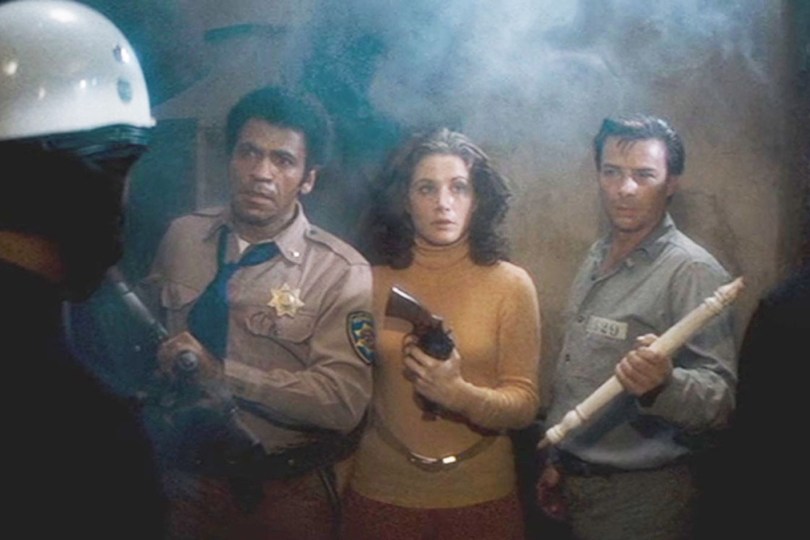
In a case you don’t know, Martin Scorsese is also a big horror fan, and not so surprisingly, he’s also a John Carpenter fan whom he calls “a fine American director”. And it’s not just his horror films, he seemingly also enjoyed Carpenter’s crime thriller “Assault on Precinct 13”. The famous scene of this film; the murder of the little girl with the ice-cream cone is one of Carpenter’s “absolutely startling” sequences for Martin.
Carpenter had always wanted to make a Western, that’s one of the reasons he came to filmmaking but he never made one, yet in many of his films you can see western influences or if you try little hard, you might see “Vampires” as some sort of neo-western even. It’s particularly huge in “Precinct 13” since its storyline is highly inspired by “Rio Bravo” but somehow, Carpenter manages to make it a stand out bringing his own style and spin to the whole thing.
With his aesthetic style, shocking sequences, evil villains which remain as a mystery for the part of the film, some social commentary, and a terrific soundtrack, it might be the first film where Carpenter showed that he’s already established his style and he’s going to make countless great films from now on. The film is still influential on the genre.
4. Murder by Contract (1958)
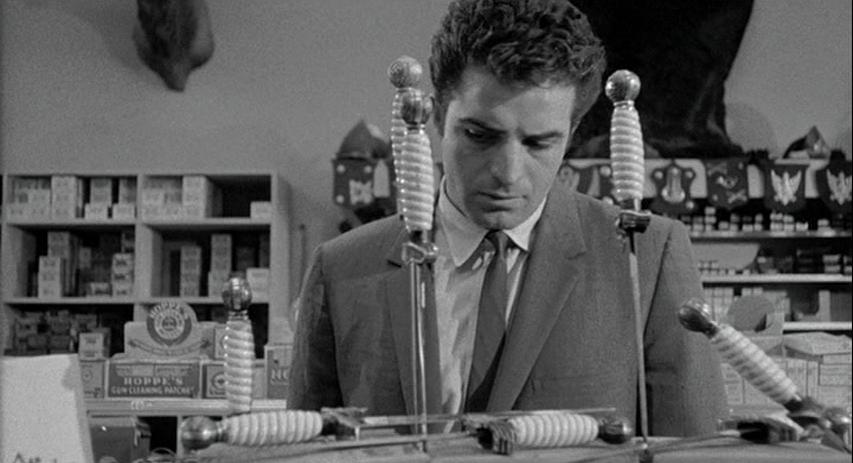
One of the lesser-known films on the list is directed by Irving Lerner and starred by Vince Edwards who gives a “marvelous performance” – with Scorsese’s words – as a disaffected man who, in search of fast money to purchase an expensive house, decides to become a contract killer. Things start to take a twist when he learns who will be his next target.
Scorsese called it one of his guilty pleasures in the late 70s and even added it might be the film that has influenced him the most. Even that “getting-in-shape” sequence in “Taxi Driver” was inspired by this film and he even wanted to put a clip in “Mean Streets” but it was too long that he had to cut it off. He had a lot of good things to say for Lerner, whom he compared to Robert Bresson and Jean Luc Godard.
He later adds that “Murder By Contract was a favorite of neighborhood guys who didn’t know anything about movies. They just liked the film because they recognized something unique about it.” The film is also notable for its witty script, interesting character, a very original screenplay which has some philosophical insights even and very fine music which only makes the atmosphere richer.
3. Touchez pas au grisbi (1954)
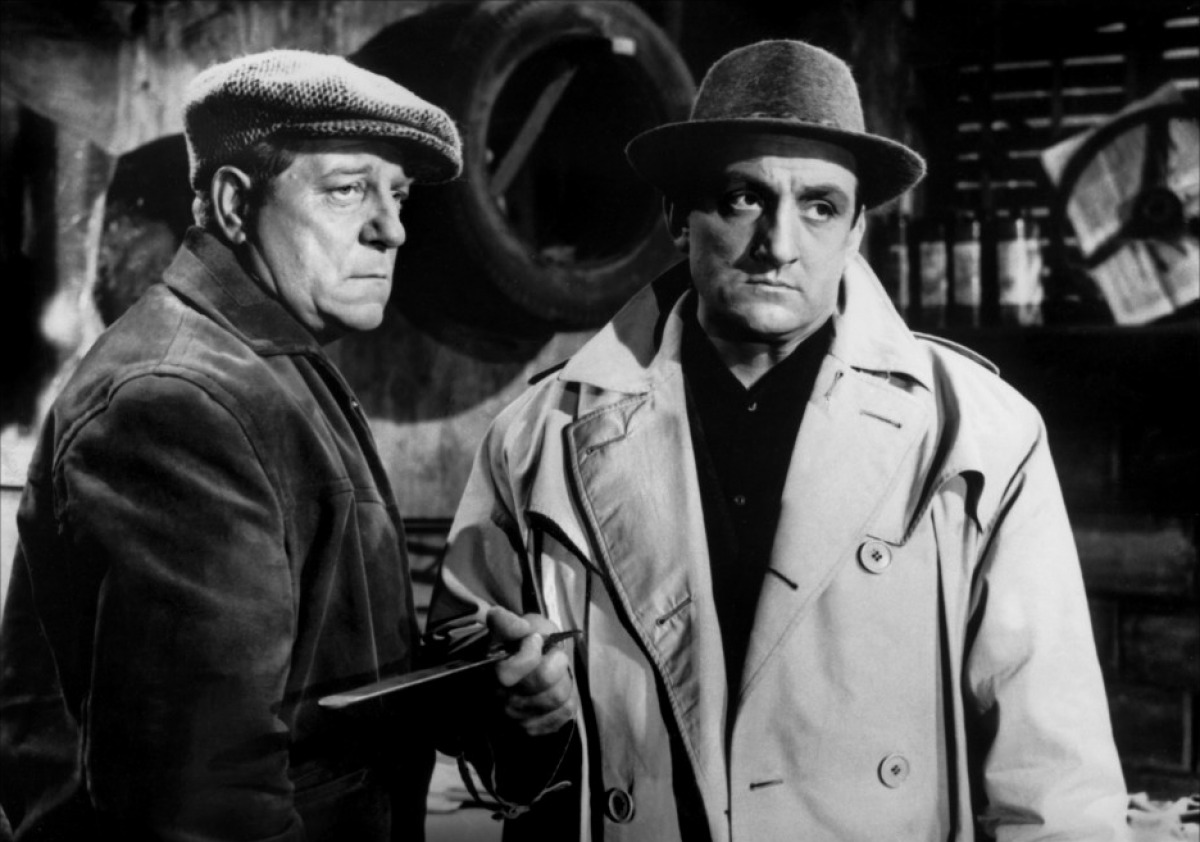
The film noir takes place in the Parisian underworld of the 1950s. The two crooks Max and Riton have stolen gold bars worth 50 million francs. Riton brags about the deed to the nightclub singer Josy. This turns out to be a fatal mistake because soon the drug dealer Angelo finds out about it and lies in wait for the two of them. Angelo’s henchmen kidnap Riton in an ambulance and blackmail Max. Max is forced to comply with Angelo’s request. But for the handover and its preparation, he gets the support of his loyal friends Marco and Pierrot. Italian-French co-production was made by Jacques Becker, a director whose films were admired by some of the filmmakers who later led the French New Wave.
This is a terrific gangster picture that works on so many levels. It might seem like it’s mostly about friendship but it also explores the ideas of honor and aging. Those characters are richly explored and the pacing is just right. Gritty tone and dark atmosphere take you in it and you find yourself transformed into the era film sets in. Jean Gabin’s performance as Max is another highlight.
2. Point Blank (1967)
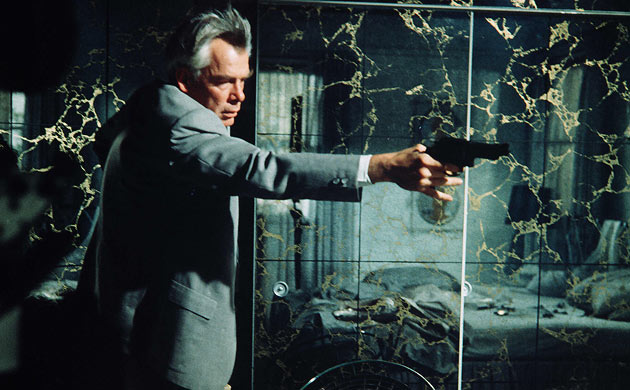
John Boorman is a little bit of an inconsistent director since some of his credits include things like “The Exorcist II” (though, Scorsese likes that film also) but that’s also because the man has always tried to tackle different genres and types of film. “Hope and Glory” and “Deliverance” are distinctively different films but they both are great in their own ways. He also loves to go over-the-top a bit with things like “Zardoz” and “Excalibur”. He likes to explore new things. “Point Blank” is another one of his stylish films where he’s in top form. He doesn’t take it as a simple revenge film, he builds every scene with masterful suspense, a bit of pessimism, and an ice-cold tone.
Scorsese was particularly impressed by the film’s technique, how its storytelling took the innovations of the French New Wave like the shortcuts and the flash-forwards and managed to apply them to the crime genre. He loved Lee Marvin’s performance who plays Walker, the man who is looking for vengeance on his old partner and his former wife – both for betraying him. Scorsese says “It gave us a sense of how the genre could pulse with the energy of a new era” and indeed it did. “Point Blank” is all around terrific film.
1. Bad Lieutenant (1992)
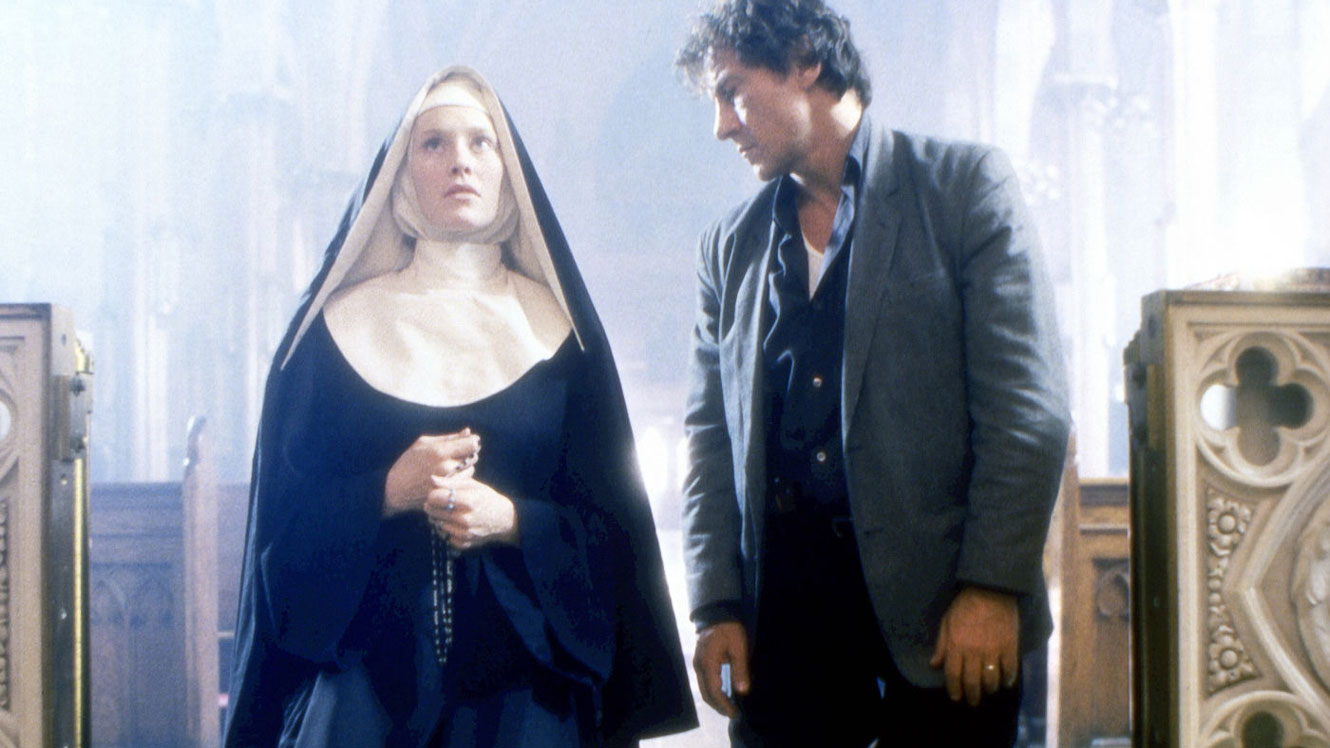
When you think about it, Marty has a lot in common with Abel Ferrara. New Yorker, Italian-American Catholics who love to explore the ideas of redemption, guilt, crime, violent nature of humans in their films with a lot of influence from the Italian auteurs they grew up with. There’s a lot of Scorsese in Ferrara’s “The Funeral” for example. While Scorsese mostly sticks to De Niro and DiCaprio, Ferrara preferred Chris Walken and Willem Dafoe. However, they have one person in common; Harvey Keitel. This is the man who was the star of feature film debuts of Scorsese, Paul Schrader, Quentin Tarantino, and Ridley Scott and since then never stopped taking risks and giving independent voices a chance. Things turn out in a way that he ended up being in probably the most famous Ferrara film and gave his arguably best performance in it.
This is a powerful, unusual tale with a remarkably original central character. Every scene in the film is bold and gutsy for its time, both in the script and in performance. However, the main difference between Scorsese and Ferrara is probably the “down-and-dirty” look Abel’s films tend to have. Yet it’s also always intellectualized and philosophical. Some of the content might turn off some viewers but Ferrara doesn’t care about that which is one of the many reasons why he remained a fascinating figure in cinema. Scorsese loved it and put it as the fifth best film of its decade.